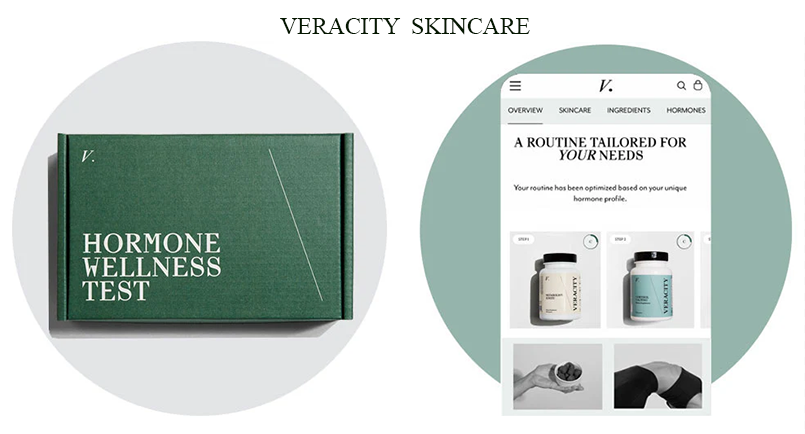
Birth control pills are commonly known for their primary purpose—preventing pregnancy—but they’re also widely used to manage various skin concerns, especially acne. However, while hormonal contraceptives can work wonders for some, they can also trigger unexpected skin reactions in others. Let’s break down how birth control impacts skin health, both the upsides and the potential downsides, so you can make informed decisions about your skin and overall health.
Contents
How Hormonal Birth Control Works in the Body
To understand how birth control affects skin, we first need a quick look at how it works. Hormonal contraceptives, like the pill, patches, or injections, usually contain a combination of estrogen and progestin (a synthetic form of progesterone). These hormones work together to regulate the menstrual cycle, prevent ovulation, and thicken cervical mucus, making pregnancy less likely. The changes in hormone levels, particularly estrogen and progesterone, also affect other bodily processes, including skin health.
The Role of Estrogen and Progestin in Skin Health
Estrogen can have a positive effect on skin by reducing oil (sebum) production and promoting hydration, which often results in clearer skin. Progestin, on the other hand, can have varied effects depending on the specific type, as some forms of progestin can mimic testosterone, potentially leading to oily skin and breakouts.
The Pros of Birth Control for Skin Health
For many women, birth control offers noticeable skin benefits. Here are some ways hormonal contraceptives can improve skin health:
Reduces Acne and Breakouts
One of the main reasons dermatologists recommend birth control for skin is its ability to manage acne. The extra estrogen in combination birth control pills can reduce sebum production, making it harder for pores to get clogged, which can help prevent breakouts.
- Decreased Oiliness: Less oil production means fewer clogged pores and a lower likelihood of acne.
- Regulation of Hormones: The pill helps keep hormonal fluctuations in check, reducing hormonal acne that often flares up around the menstrual cycle.
For women struggling with persistent acne, birth control can be a game-changer, especially if other treatments haven’t worked.
Helps with Menstrual Cycle-Related Skin Issues
Many women experience skin changes tied to their menstrual cycle, such as breakouts before or during their period. Birth control can help regulate these fluctuations by maintaining consistent hormone levels, which may prevent these cyclical skin problems.
Regular cycles often mean more predictable skin, and with fewer hormonal ups and downs, there’s a better chance of avoiding those dreaded mid-cycle breakouts.
Improves Skin Texture and Hydration
Estrogen has a hydrating effect on the skin, which can lead to a softer, more youthful texture. Birth control that contains estrogen may help improve skin hydration, reducing dryness and helping the skin retain moisture more effectively.
Women who notice dry skin due to natural hormonal shifts may find that hormonal contraceptives help keep their skin balanced, supple, and glowing.
The Cons of Birth Control for Skin Health
While there are clear benefits, hormonal birth control is not without potential skin downsides. Some women may experience unwanted effects, particularly those with sensitivities or underlying hormonal conditions.
Can Cause or Worsen Hyperpigmentation
Birth control can sometimes lead to melasma, also known as the “mask of pregnancy,” which presents as brown or grayish-brown patches on the face. Estrogen increases melanin production, which can make the skin more prone to dark spots, especially with sun exposure.
- Sun Sensitivity: Women on birth control are often more sensitive to sun exposure, which can worsen hyperpigmentation.
- Long-Lasting Effects: Hyperpigmentation caused by birth control can be stubborn and take months or years to fade completely.
Those prone to hyperpigmentation or with a family history of melasma may want to be cautious and use sun protection diligently if they’re on birth control.
May Lead to Dryness or Sensitivity
Some women experience drier skin on birth control, especially if they are prone to dryness to begin with. Birth control can disrupt the skin’s natural oil balance, leading to skin that feels tight, flaky, or more sensitive than usual.
If dryness becomes an issue, consider hydrating skincare products, such as hyaluronic acid serums or barrier creams, to replenish moisture and support the skin’s protective barrier.
Potential for Increased Risk of Breakouts with Certain Progestins
Not all birth control pills contain the same type of progestin. Some forms of progestin can mimic androgens (male hormones), leading to an increase in oil production and a higher risk of breakouts for women sensitive to these changes.
If you’re experiencing breakouts after starting birth control, consider discussing options with your healthcare provider. Certain birth control pills are FDA-approved for acne treatment and may contain skin-friendly progestins that have a low androgenic effect.
Choosing the Right Birth Control for Skin Health
Because different hormonal contraceptives contain varying combinations and types of hormones, choosing the right one can make all the difference for your skin. Here’s what to consider:
Combination Pills vs. Progestin-Only Pills
- Combination Pills: These pills contain both estrogen and progestin, and are often better for managing acne and oily skin. However, they may increase the risk of hyperpigmentation.
- Progestin-Only Pills: Also known as the “mini-pill,” these are more likely to lead to breakouts and may not provide the same skin benefits as combination pills, as they lack estrogen.
Discussing your skin type and any acne history with your doctor can help ensure you’re prescribed a contraceptive that aligns with your skin’s needs.
Assessing Skin-Friendly Progestins
If you’ve experienced breakouts or oiliness on birth control in the past, it may have been due to the type of progestin in the pill. Some progestins have high androgenic activity, meaning they act similarly to male hormones, which can increase oil production. Here are some types of progestins commonly found in acne-friendly birth control pills:
- Drospirenone: Known for its anti-androgenic properties, this progestin is often used in birth control pills for women with acne-prone skin.
- Desogestrel and Norgestimate: These are other lower-androgenic progestins that can help maintain clearer skin while preventing pregnancy.
Finding a pill with a low-androgen progestin can help control hormonal acne and support balanced skin.
Alternatives to Birth Control for Skin Management
If birth control doesn’t seem like the right fit, there are other ways to manage hormonal acne and other skin concerns. Here are a few non-hormonal options that may be effective:
Topical Treatments
- Retinoids: Prescription retinoids like tretinoin can help improve skin texture, reduce acne, and fade hyperpigmentation.
- Azelaic Acid: This is an effective option for reducing pigmentation and acne without hormonal interference.
Oral Medications
For those with severe hormonal acne, dermatologists may recommend medications like spironolactone, which blocks androgen receptors and can help reduce oil production without affecting estrogen levels.

